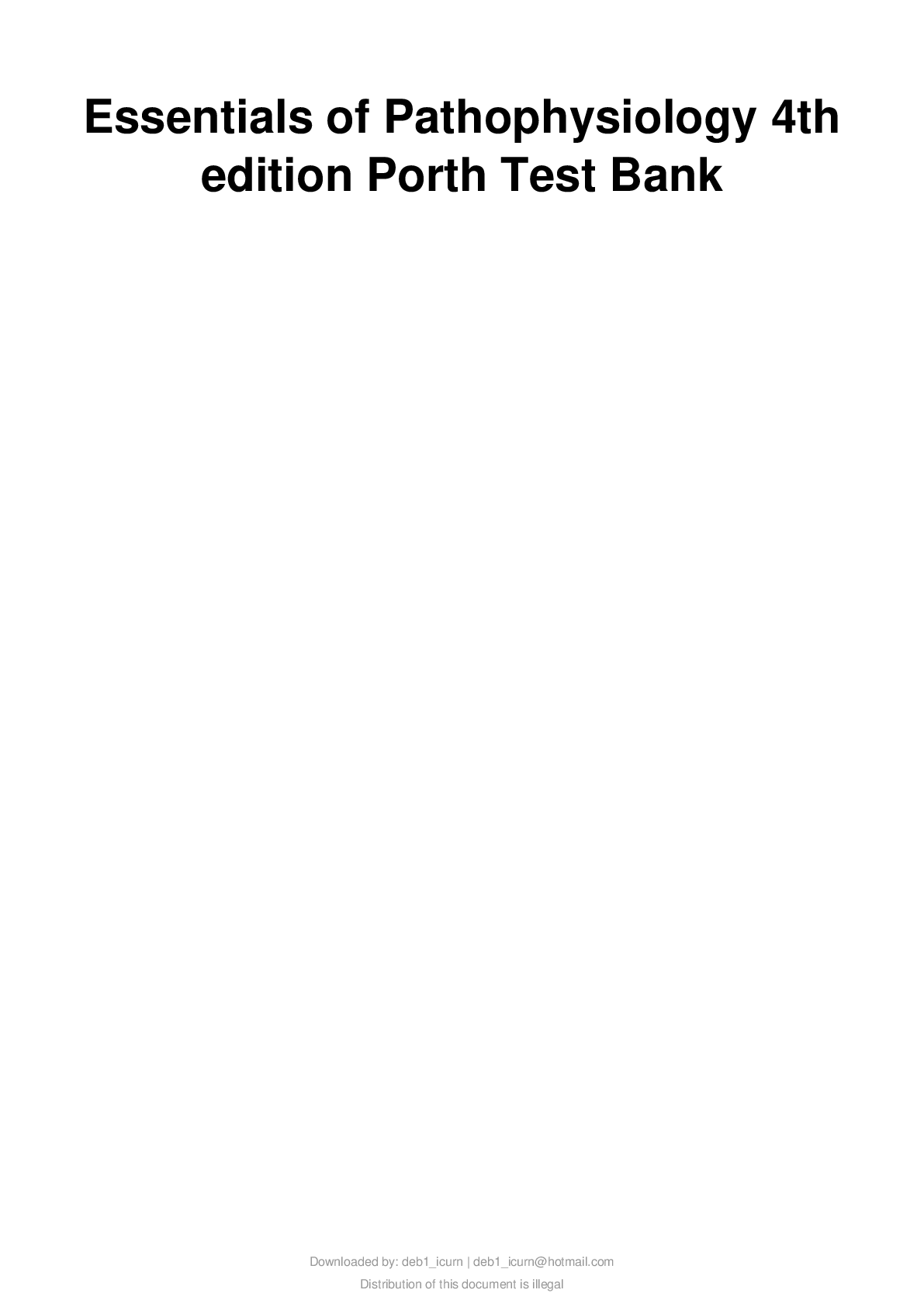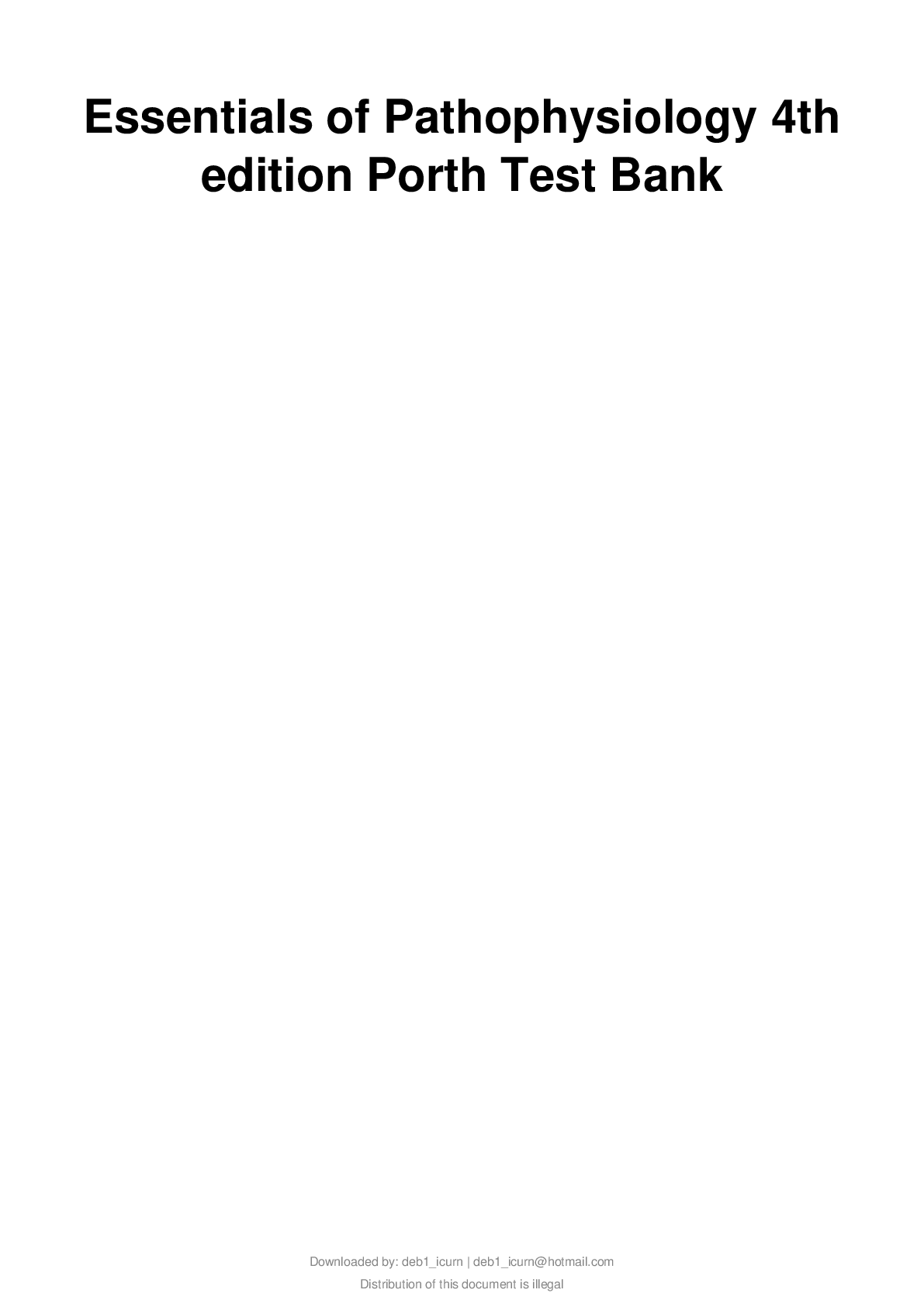Porth's Essentials of Pathophysiology 5th Edition Test Bank
Course
Project Management
Subject
Chemistry
Category
Questions and Answers
Pages
302
Uploaded By
ATIPROS
Preview 5 out of 302 Pages


Download all 302 pages for $ 16.00
Reviews (0)
$16.00
